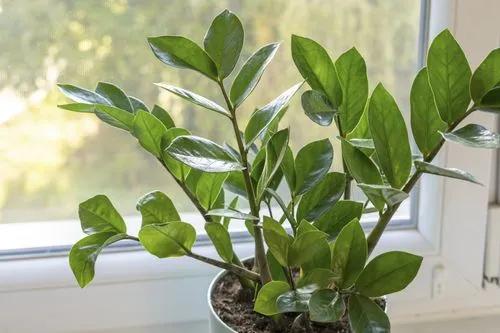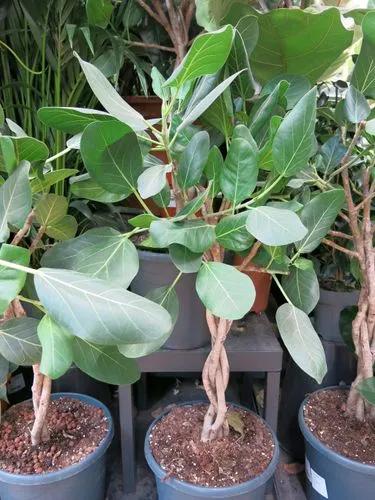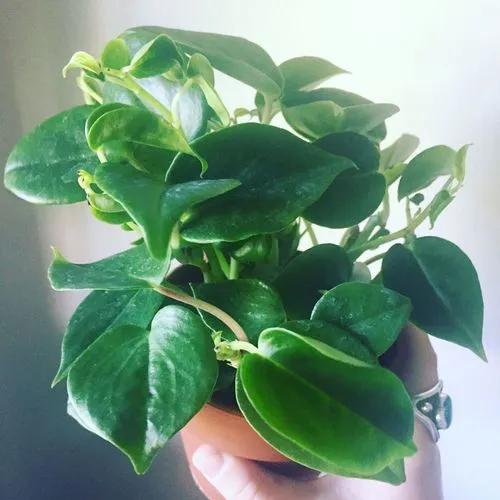Hypoestes Sanguinolenta is a beautiful, unique houseplant with catchy foliage that will add a pop of color to any home or office. It is popular for its unique leaves that are covered in colorful spots. Sometimes this plant is grown in hanging baskets to show off its trailing habit.
Hypoestes sanguinolenta Care
Hypoestes phyllostachya



Also known as Polka Dot Plant and Freckle Face Plant, Hypoestes phyllostachya is identified as a species of the Acanthaceae family native to Madagascar. It is an evergreen perennial with a bushy habit where it grows to a height of about one foot (30 cm) and has attractive green leaves with deep red veins. The small blooms usually appear in summer and are white or pink in color.
How to Care for the Plant

Water

As a water-lowing greenie, Polka Dot Plant prefers consistently hydrated soil. Water the plant regularly, aiming to keep the soil evenly moist but not waterlogged. Reduce hydration frequency in winter when the plant's growth slows down.

Pruning

It's not necessary to prune Hypoestes phyllostachya; however, you can practice it to maintain the plant's shape and bushier growth. Always use sterile cutting instruments and pinch back the tips of the stems above the node. Remove any foliage that appears damaged or dry.

Fertilizer

Give your Polka Dot Plant extra feeding once a month during the spring-summer growing season. Use a balanced, water-soluble fertilizer. Make sure to follow the manufacturer's instructions written on the packaging.

Sunlight

Polka Dot Plant enjoys bright, indirect sunlight. Place it near the window that receives filtered light for around 6 hours per day. Avoid exposing the plant to direct sunlight, as it might scorch leaves.

Soil

Plant your Measles Plant into a well-draining, fertile growing medium. Use a commercial potting mix or mix your own substrate with equal parts of peat moss, perlite, and compost. 5.6 to 6.5 pH soil acidity level would be the most beneficial for Freckle Face Plants.

Propagation

It's best to propagate this leafy plant through stem cuttings. Take a healthy 3-4 inches (8-10 cm) long stem, remove the lower leaves, and dip the end in a rooting hormone powder. Plant the cutting in a well-draining potting mix and rinse it regularly. Keep the pot in a warm location under indirect light. It should root within several weeks.

Temperature

Measles Plant prefers the moderate climate of 60-75°F (16-24°C) temperatures. Avoid placing it in drafty or cold locations.

Container

Freckle Face Plant feels well in most kinds of containers. Plant it in pots, hanging baskets, and terrariums, but make sure the container has drainage holes to prevent waterlogging. A plastic or ceramic container is a good choice, as it can retain moisture better than porous materials like clay. Make sure the pot is big enough to accommodate the plant's roots and allow some room for growth.

Fun fact

Hypoestes phyllostachya gets its common name from the unique foliage. Interestingly, the plant's dotted leaves can change color depending on the amount of sunlight and the plant's age. The younger leaves are more vibrant and colorful, while the older ones turn darker and may lose their spots.

Popularity

44,383 people already have this plant 6,812 people have added this plant to their wishlists
Discover more plants with the list below
Popular articles






